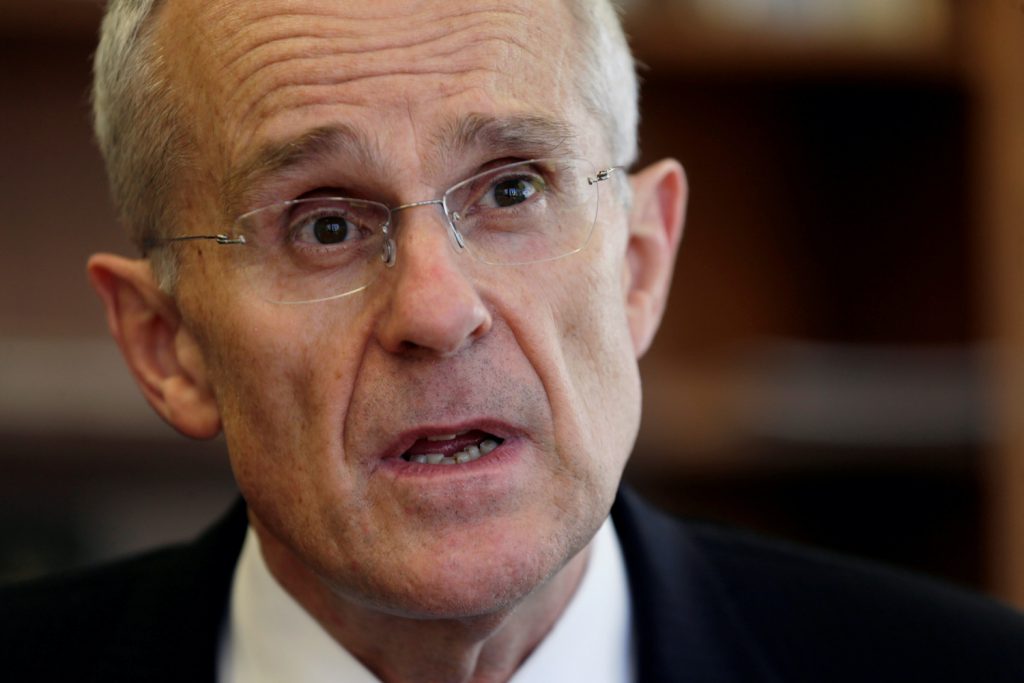Australia’s anti-competition watchdog has called for powers to curb Google’s use of internet data to sell targeted ads, joining other regulators in saying the firm dominates the market to the point of hurting publishers, advertisers and consumers.
The comments, in a report published on Tuesday, puts Australia alongside Europe and Britain where regulators want to stop the Alphabet unit trouncing rival advertisers by using the data it collects from people’s online searches – including on maps and YouTube – to place marketing material.
The US Justice Department is, meanwhile, preparing an anti-monopoly lawsuit accusing Google of using its market muscle to hobble advertising rivals, according to media reports.
“The Europeans and the UK are consulting on such laws at the moment and we’re going to be trying to align with them over the next year,” Australian Competition and Consumer Commission (ACCC) Chair Rod Sims said in an interview. “I don’t think we’re far behind.”
Already this year Google said it was poised to withdraw core services from Australia over a law – also recommended by the ACCC – forcing it to pay media companies for content that drives traffic to its search engine. It ultimately inked deals with most major outlets.
Google said, following the report, that its advertising arm supported over 15,000 Australian jobs and contributed $2.45 billion to Australia’s economy annually.
“As one of the many advertising technology providers in Australia, we will continue to work collaboratively with industry and regulators to support a healthy ads ecosystem,” a spokesperson said.
Treasurer Josh Frydenberg, who commissioned the report, said the government would consider its findings and recommendations.
‘AD TECH’
While the US Justice Department is likely to use existing competition law against Google, the ACCC said in its 200-page report that Google’s dominance of Australian online advertising was so entrenched that existing laws were insufficient to rein in any anti-competitive behaviour.
More than 90% of clicks on Australian internet ads were at least partly the result of one of Google’s offerings in 2020, the regulator said.
The latest dispute is about advertising technology, or ad tech, which refers to services that facilitate transactions to buy and sell online advertising space and that determine which ads are shown to consumers. They involve the automated use of algorithms that result in an image or video – including banners and pop-ups – appearing with online content.
Businesses rely on those services to reach prospective customers while news publishers use ad tech to generate revenue and fund their online content.
The ACCC report found that Google uses its market position to preference its own services and protect them from competition, and said that is likely to harm publishers, advertisers and consumers via higher ad tech fees and higher costs to customers.
It said the US company benefits from vast amounts of internet user data from its search engine, mapping and YouTube video streaming services, and must be made to clarify publicly how it uses that information to sell and display advertisements.
It recommended that the industry publish average ad tech fees to help customers compare costs, because ad tech pricing is unclear and complex, making it difficult for advertisers and publishers to detect misconduct.

NEW RULE SOUGHT
It wants powers to address the imbalance of advertiser access to consumer data, such as a rule that would stop a company from using data collected by one part of its business to sell targeted advertisements via another part without a rival company getting the same benefit. The mechanisms required to reform the sector, including potential new powers for the regulator, will be considered as part of a broader ACCC report due in September 2022. Consultations with Google and others are set to start early next year.
Sims said he expected the global push to increase regulation of Google’s advertising business would raise the chances of cooperation between the US internet giant and the regulator.
“I just think they can see what’s happening and it’s in their interests that these rules are aligned [between countries] and it’s in their interests that they’re really well thought through,” he said in the interview.
“We don’t want to stifle innovation, we don’t want to have any negative effects, we just want to promote competition, reduce entry barriers, so that consumers get a better internet, better transparency about what’s going on and companies aren’t paying too much.”
• Reuters with additional editing by Jim Pollard























